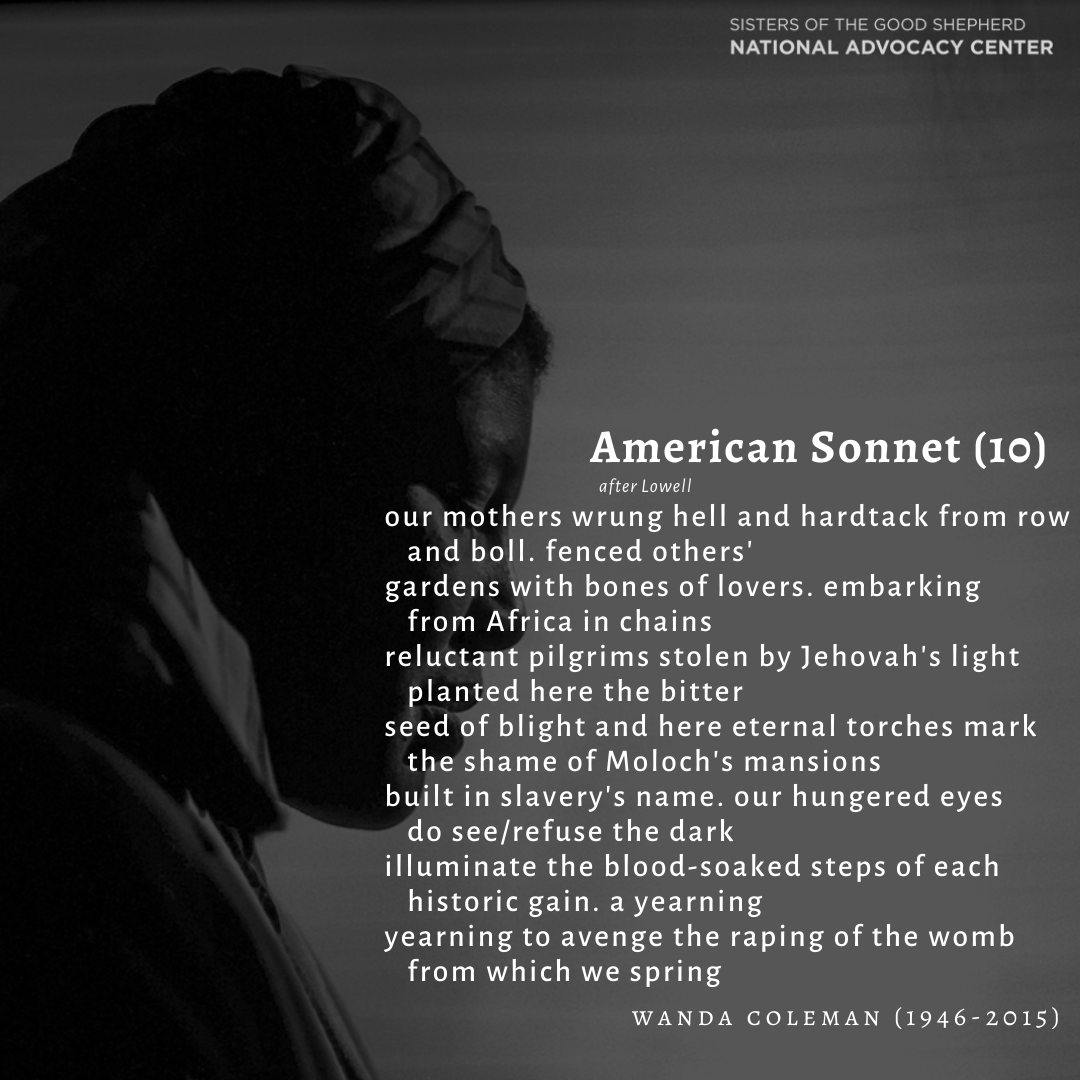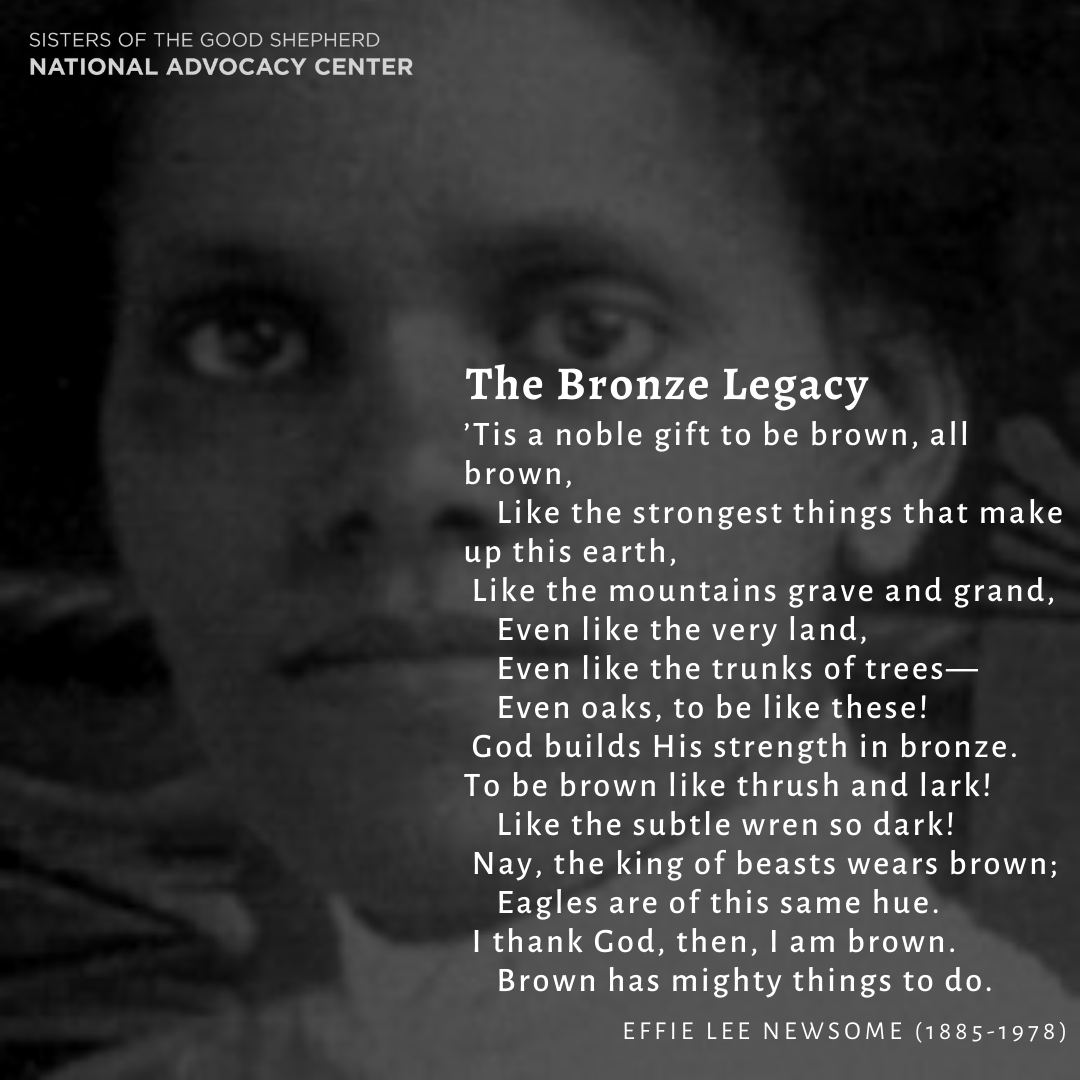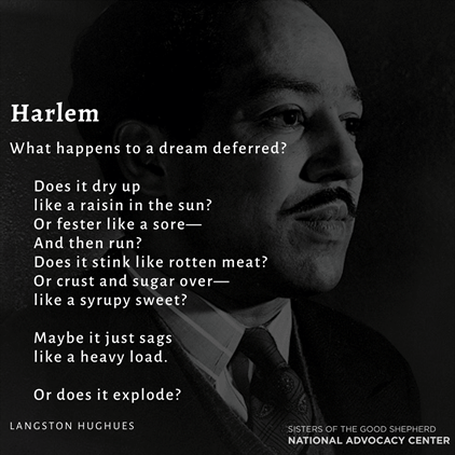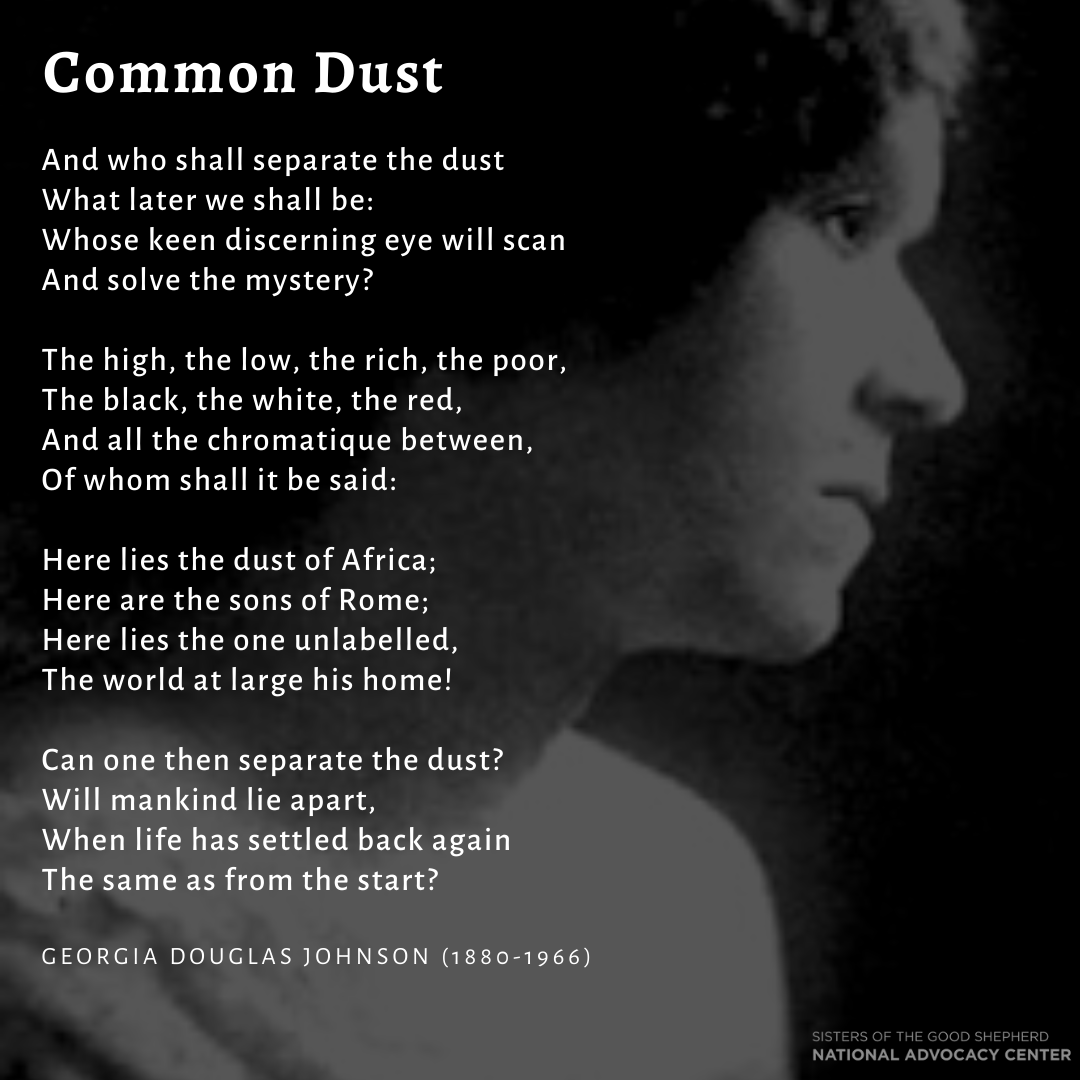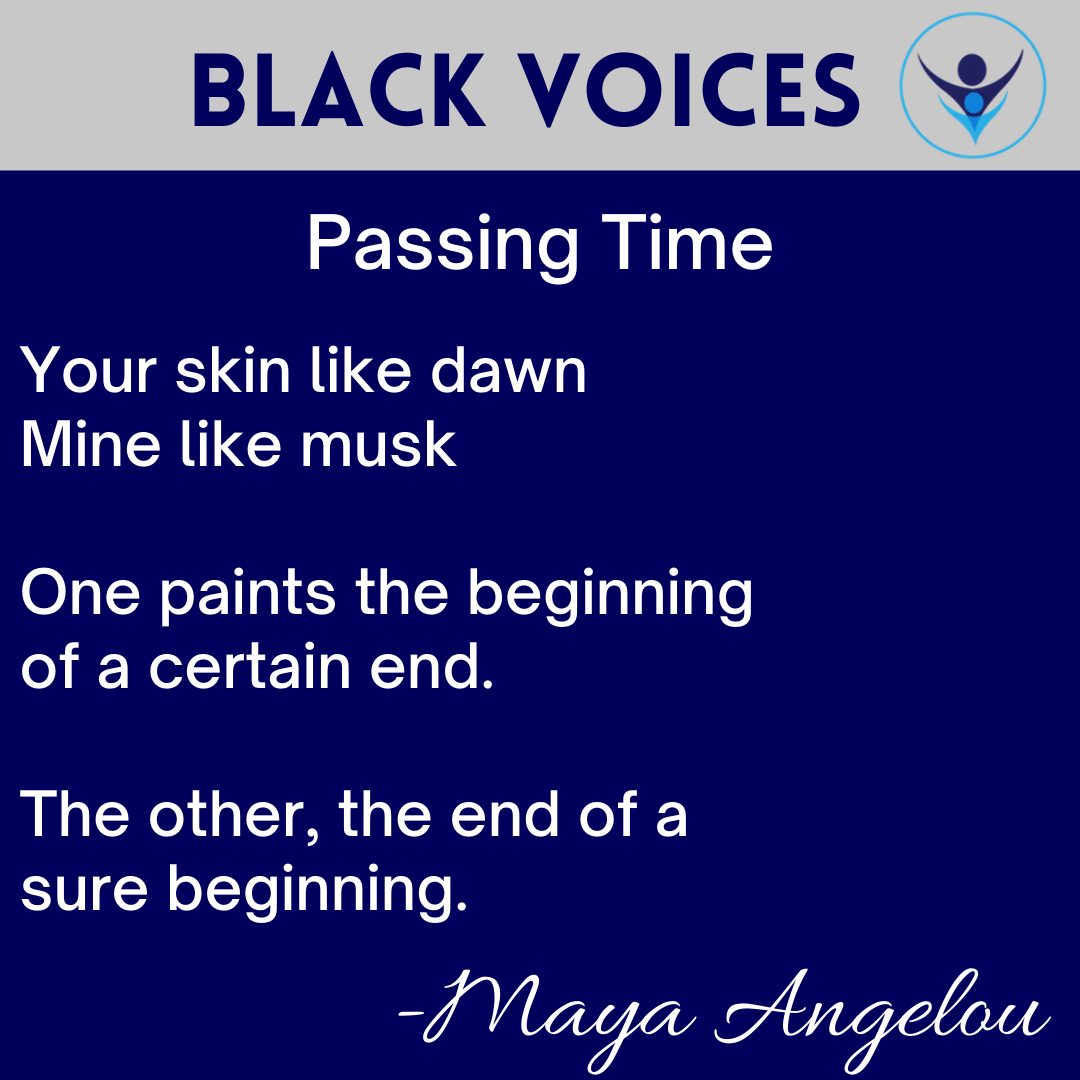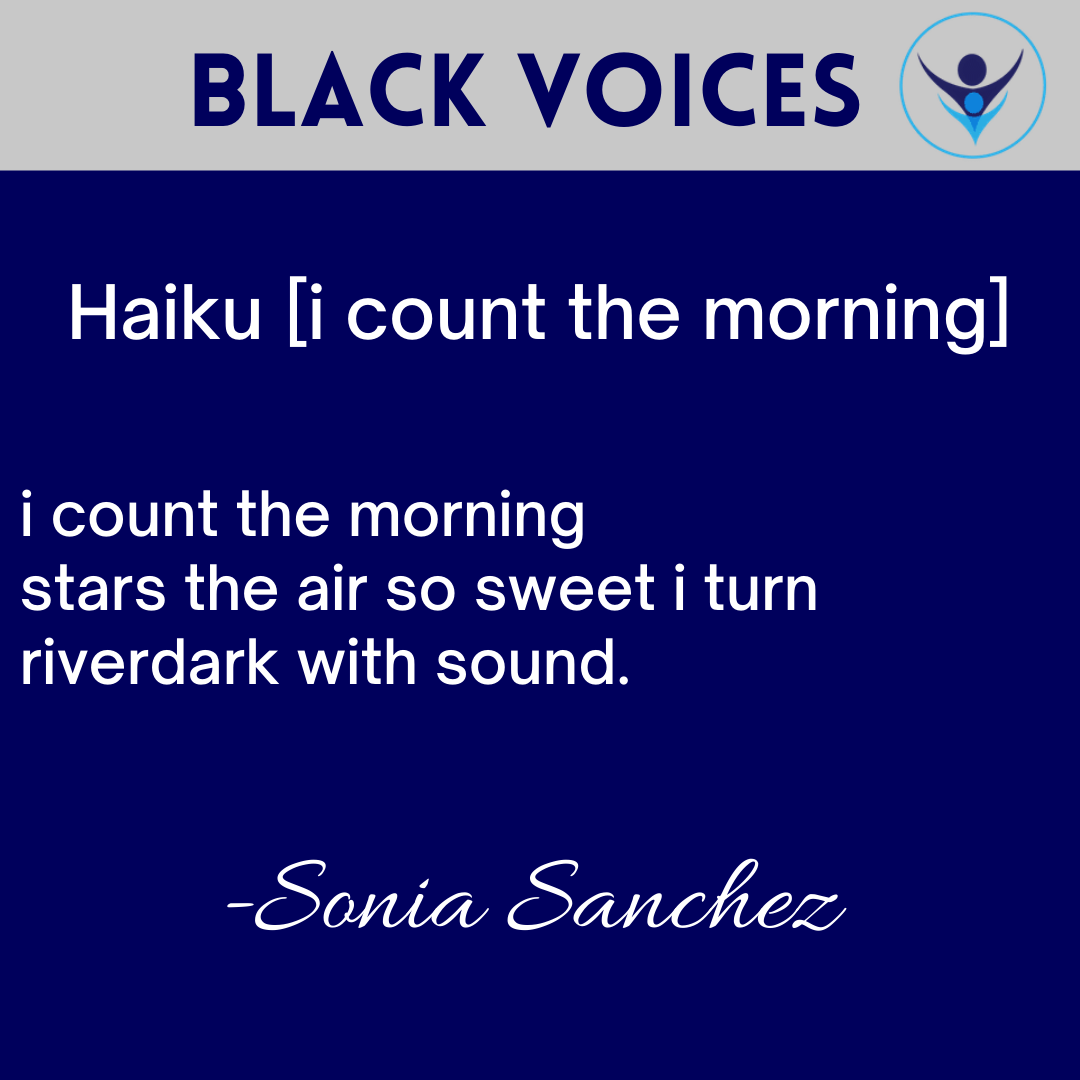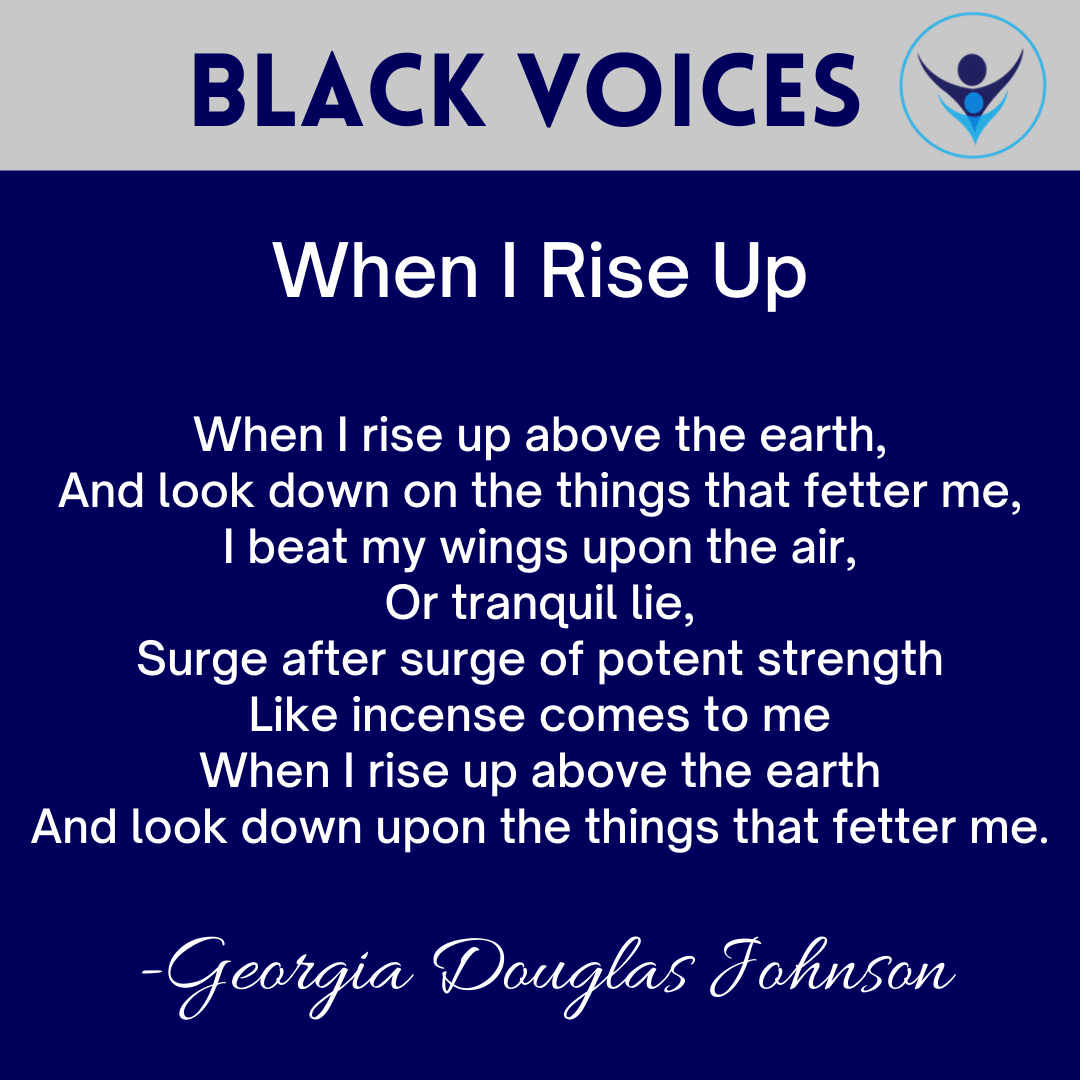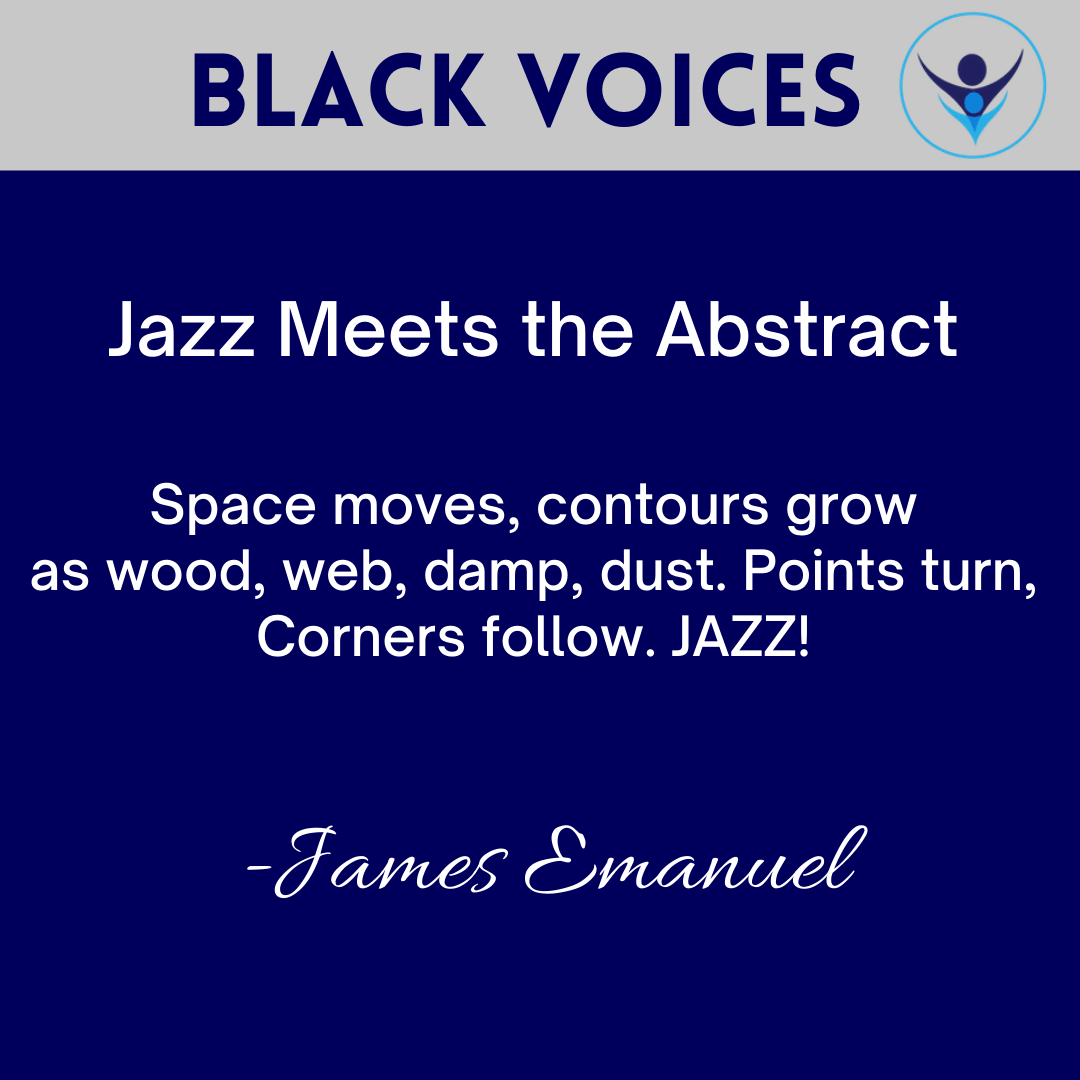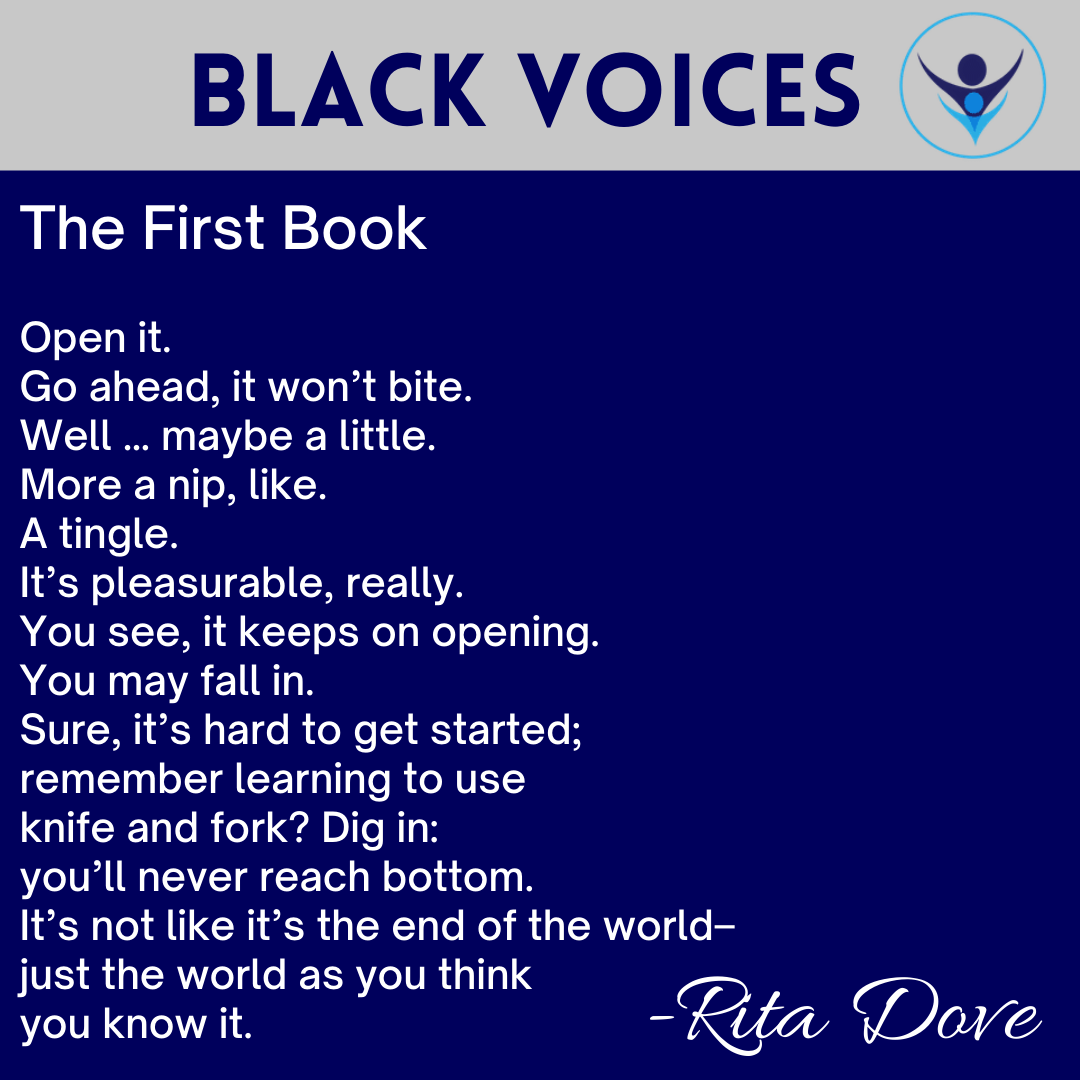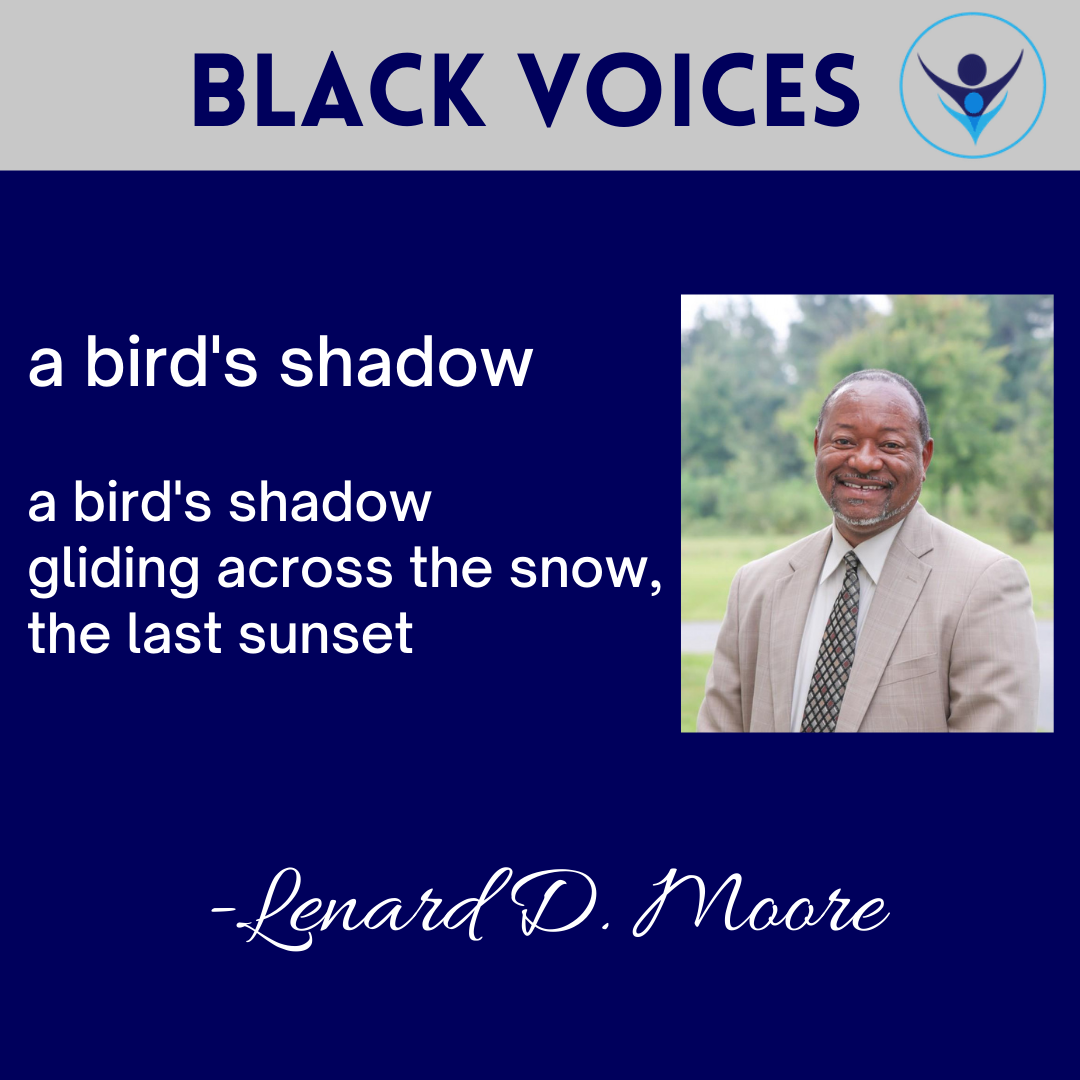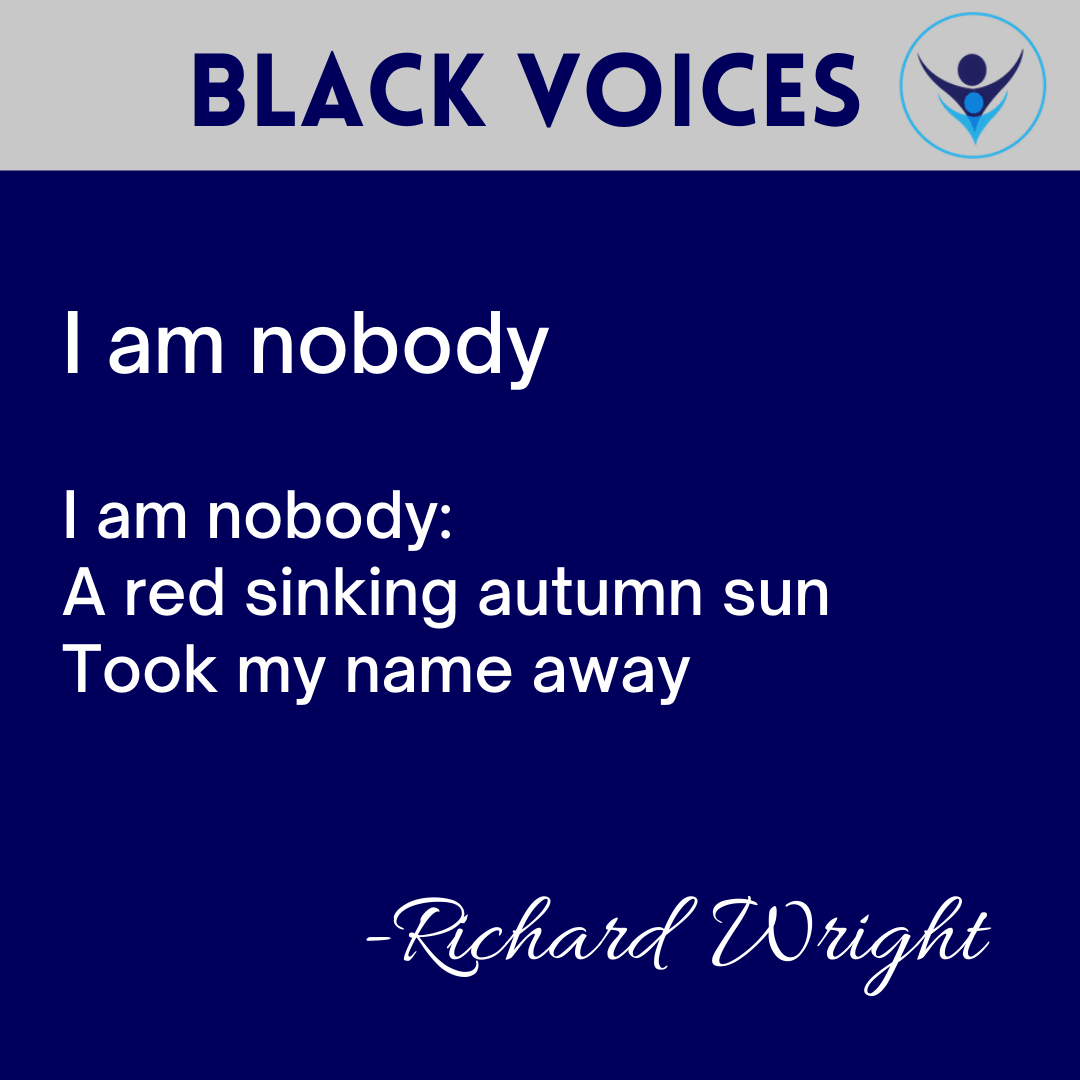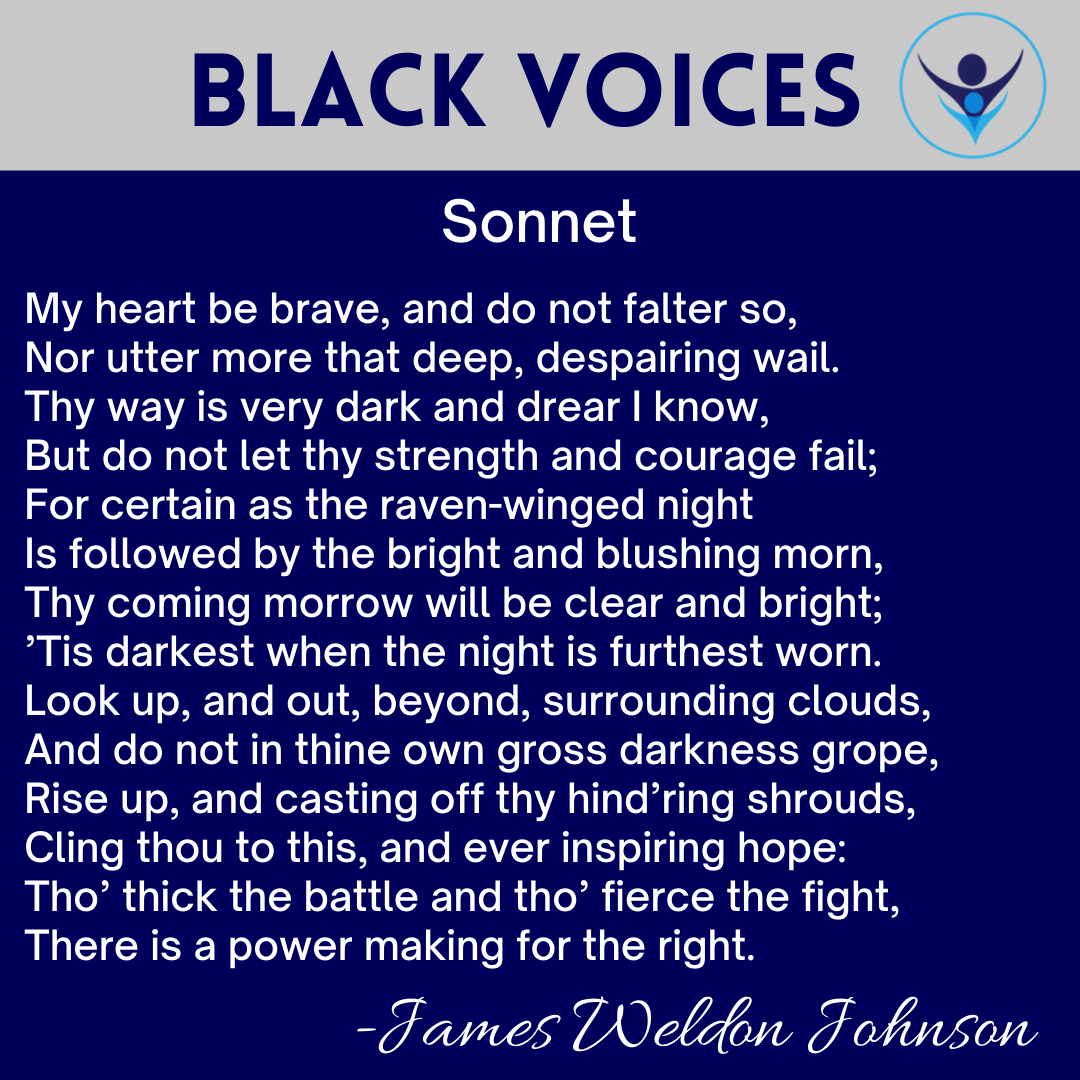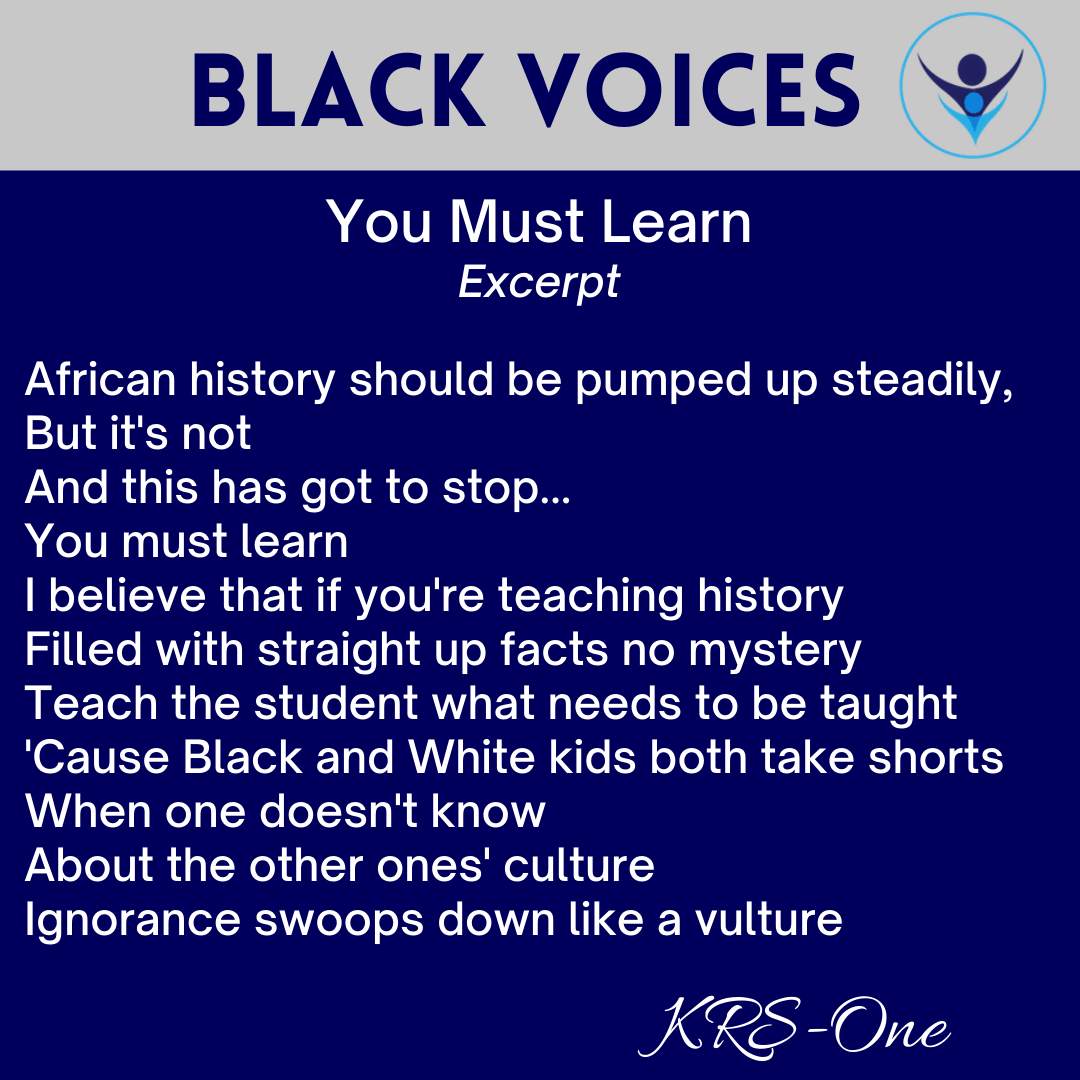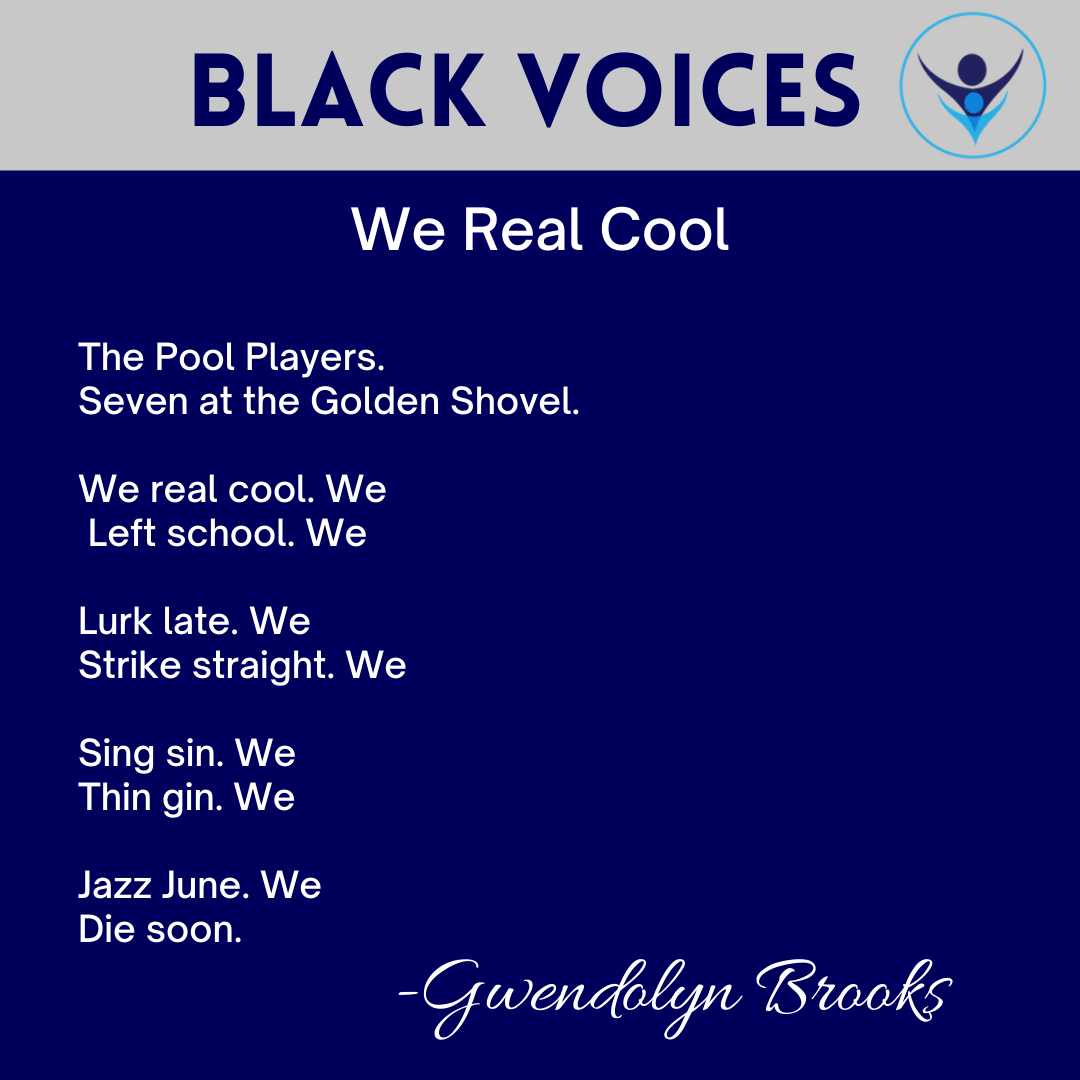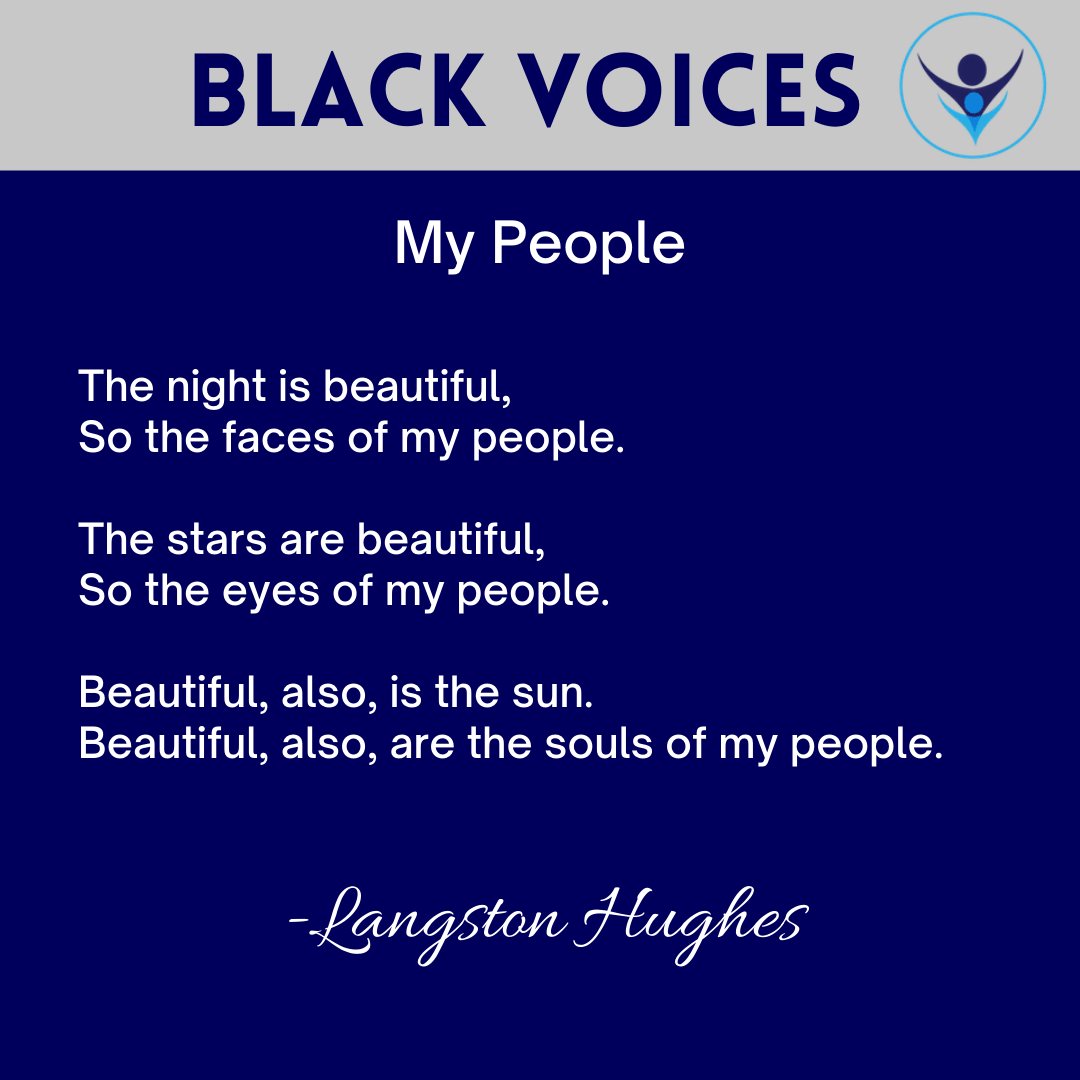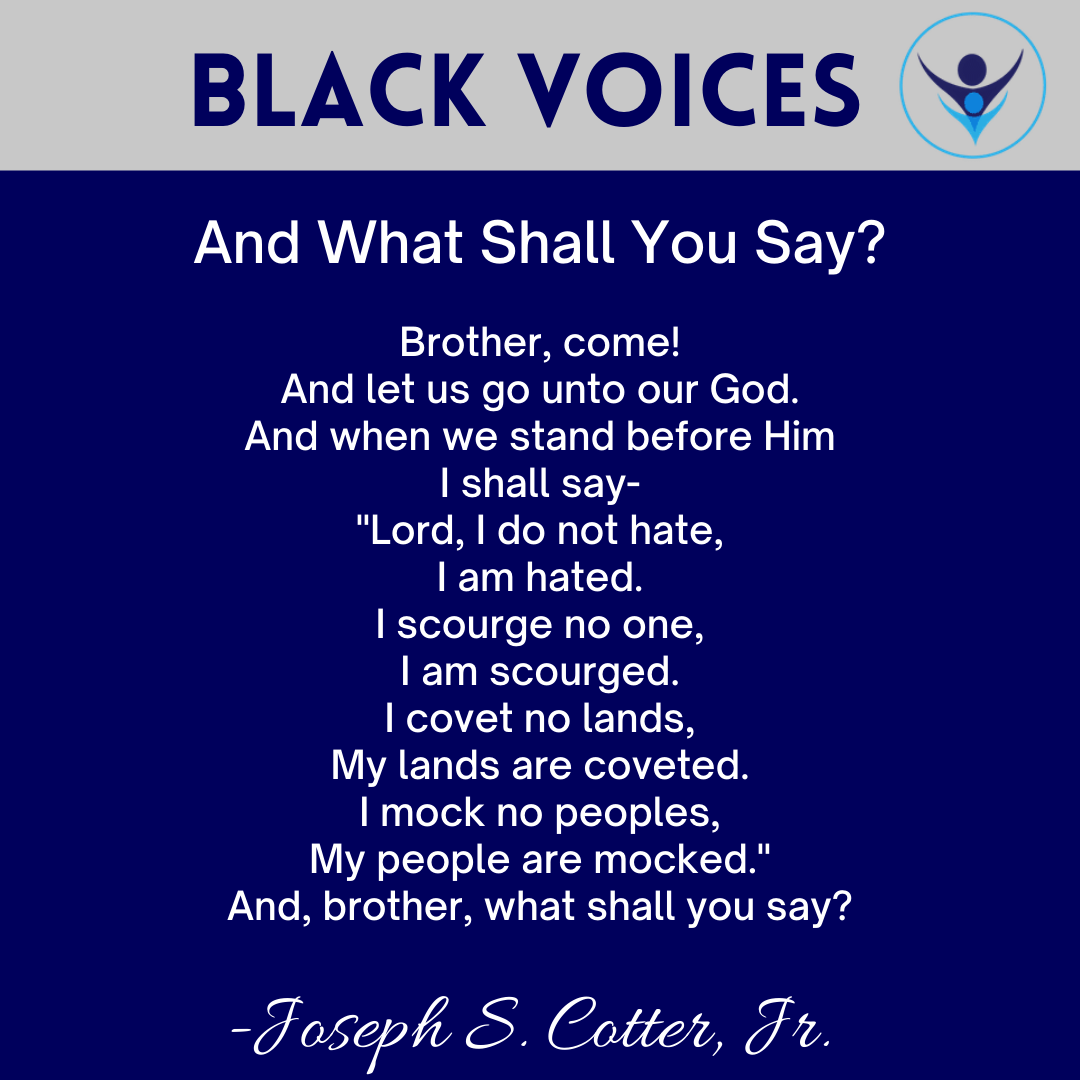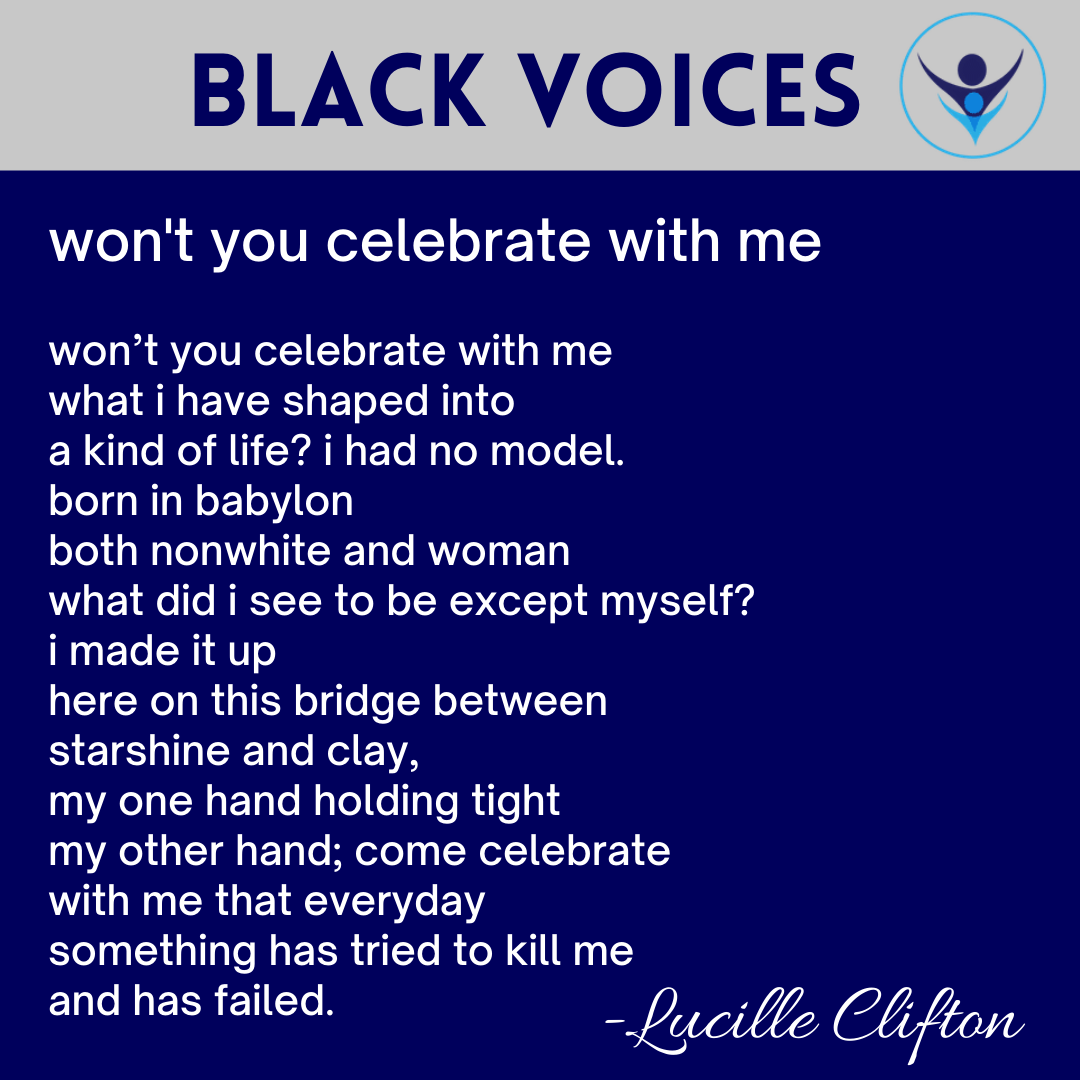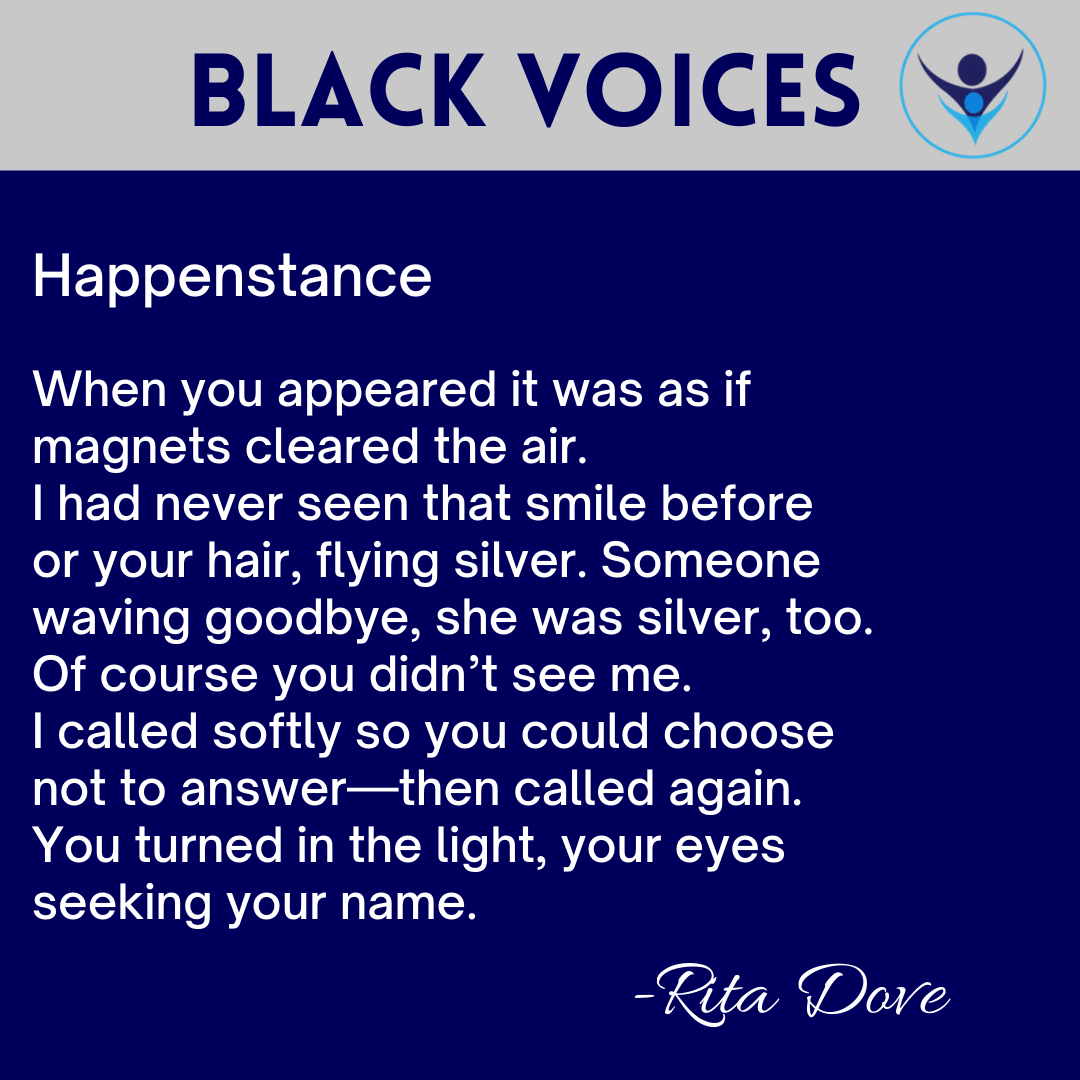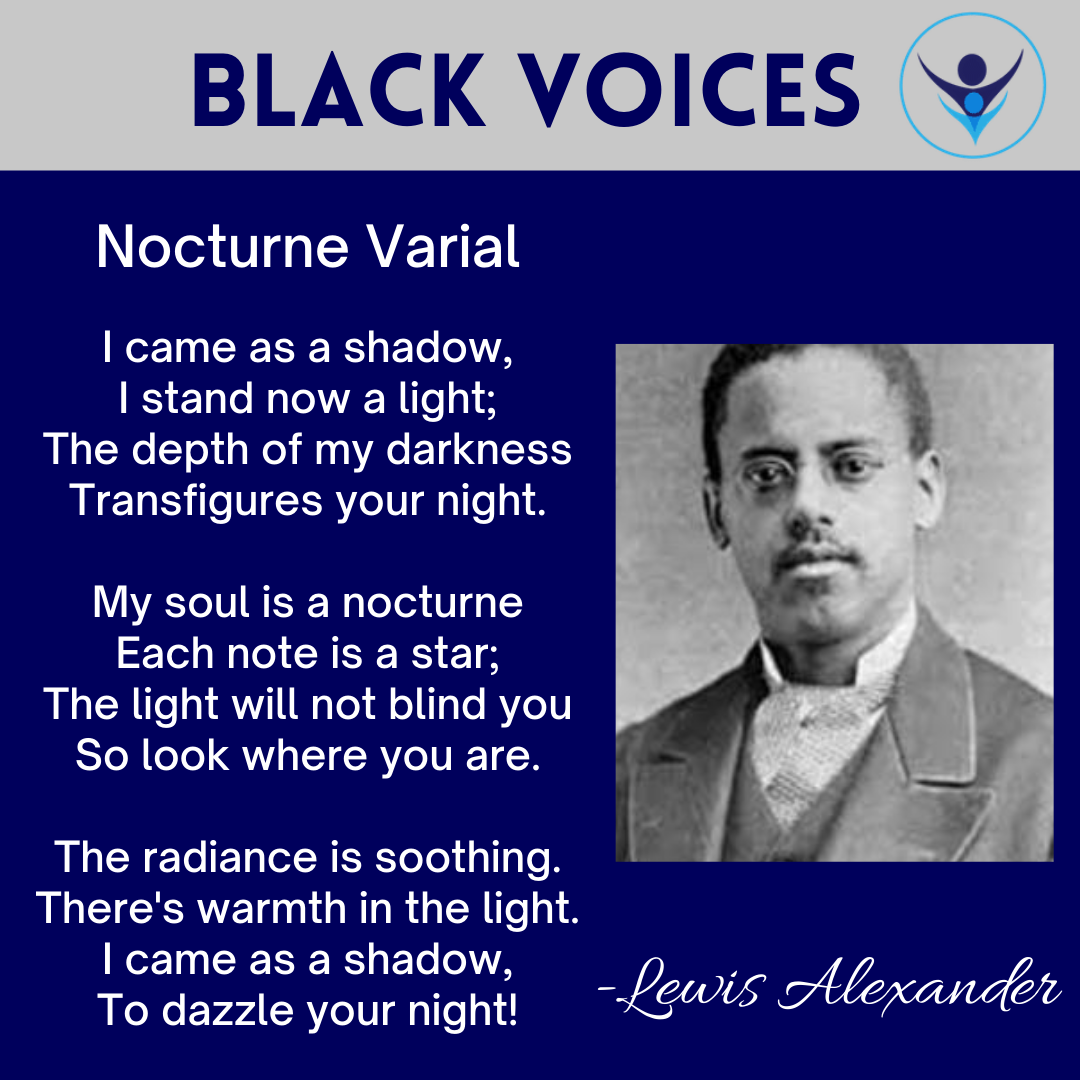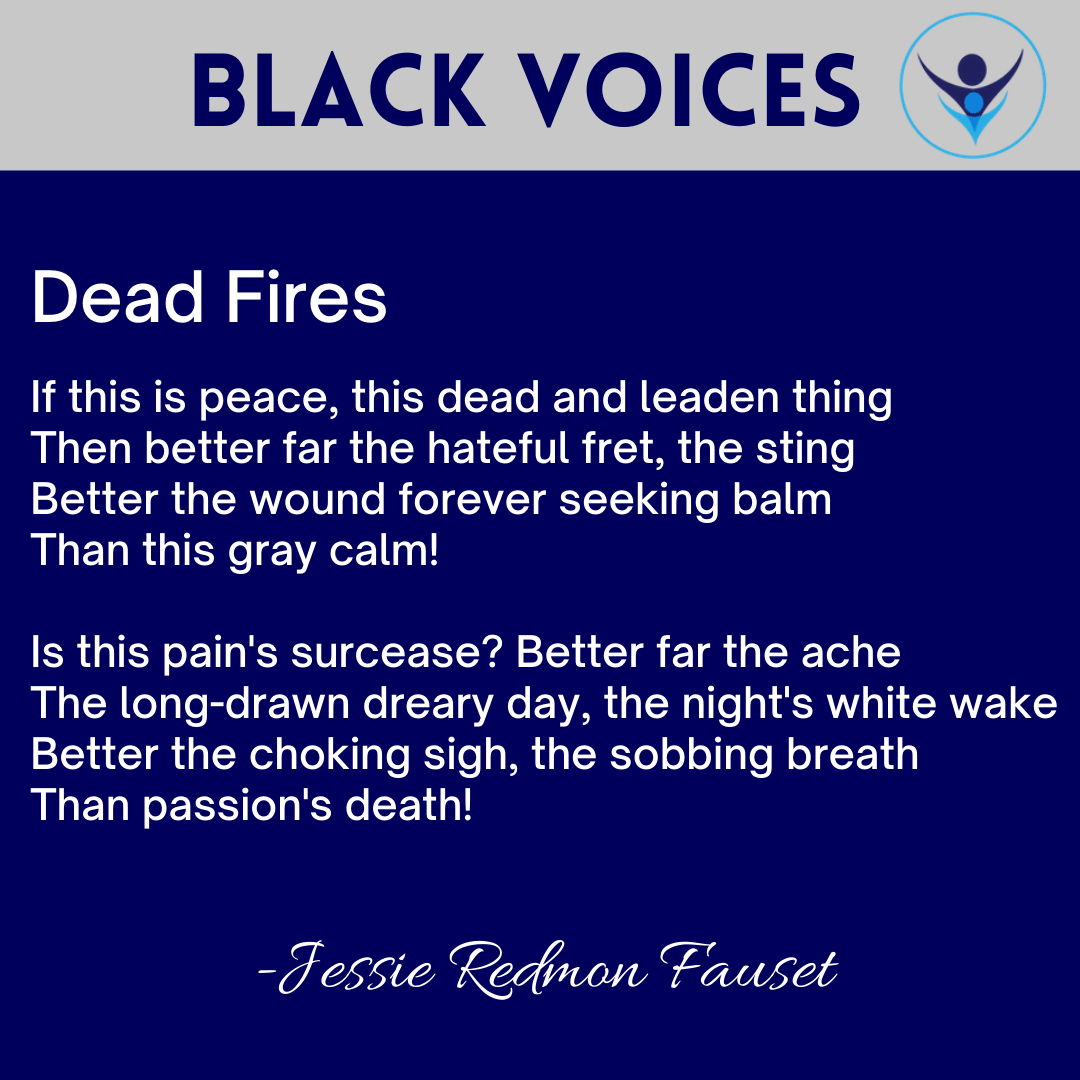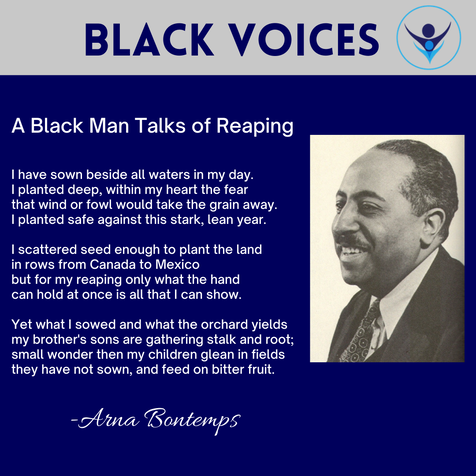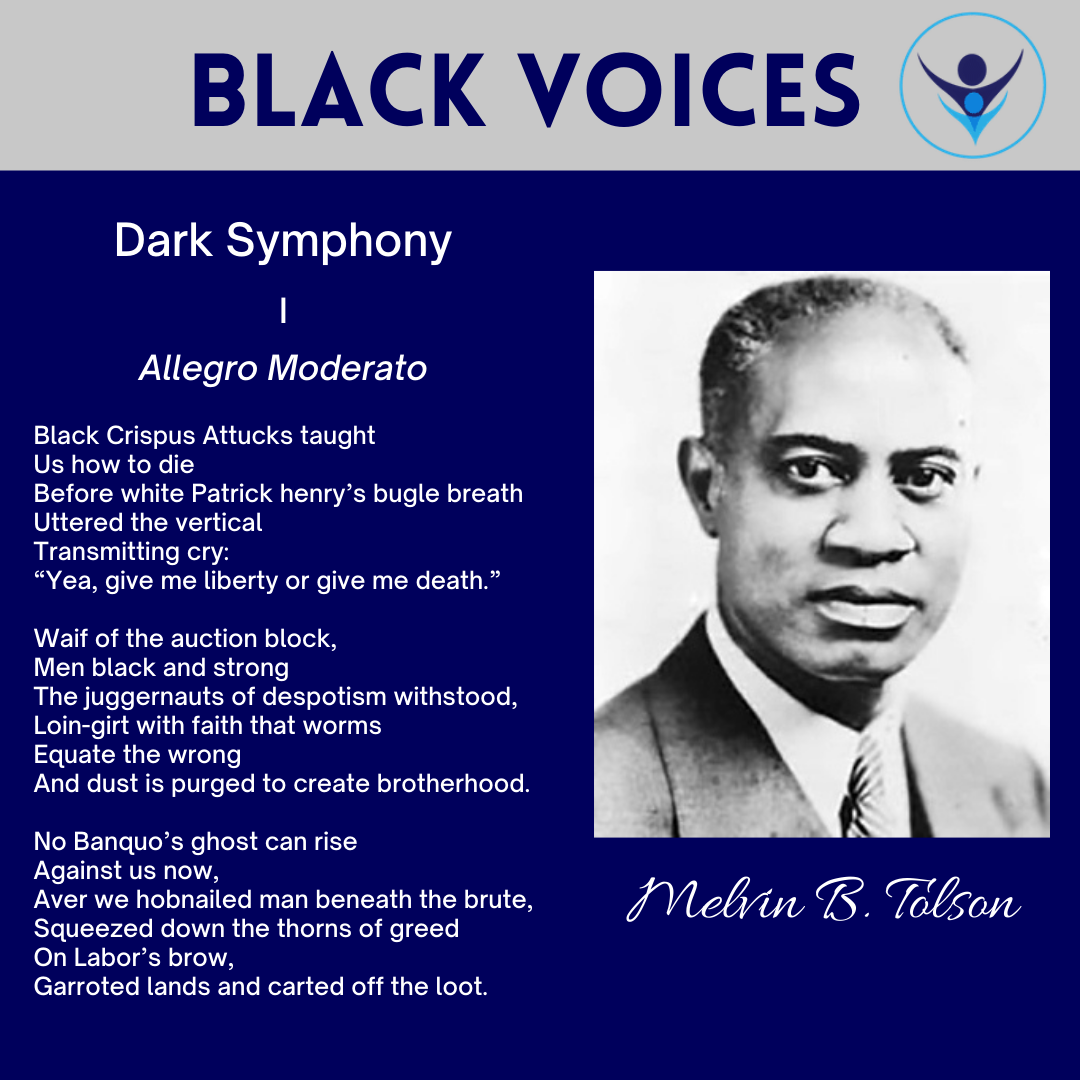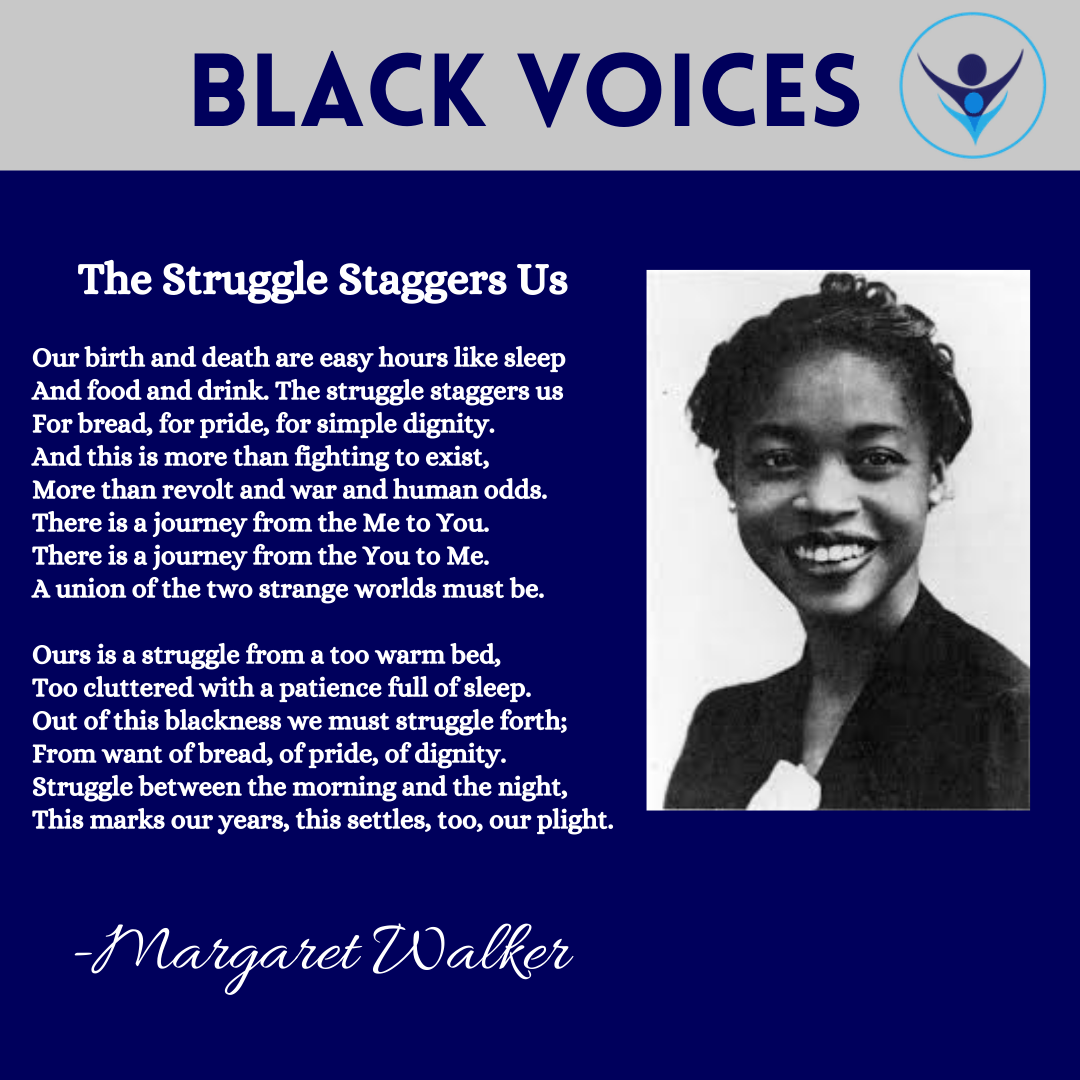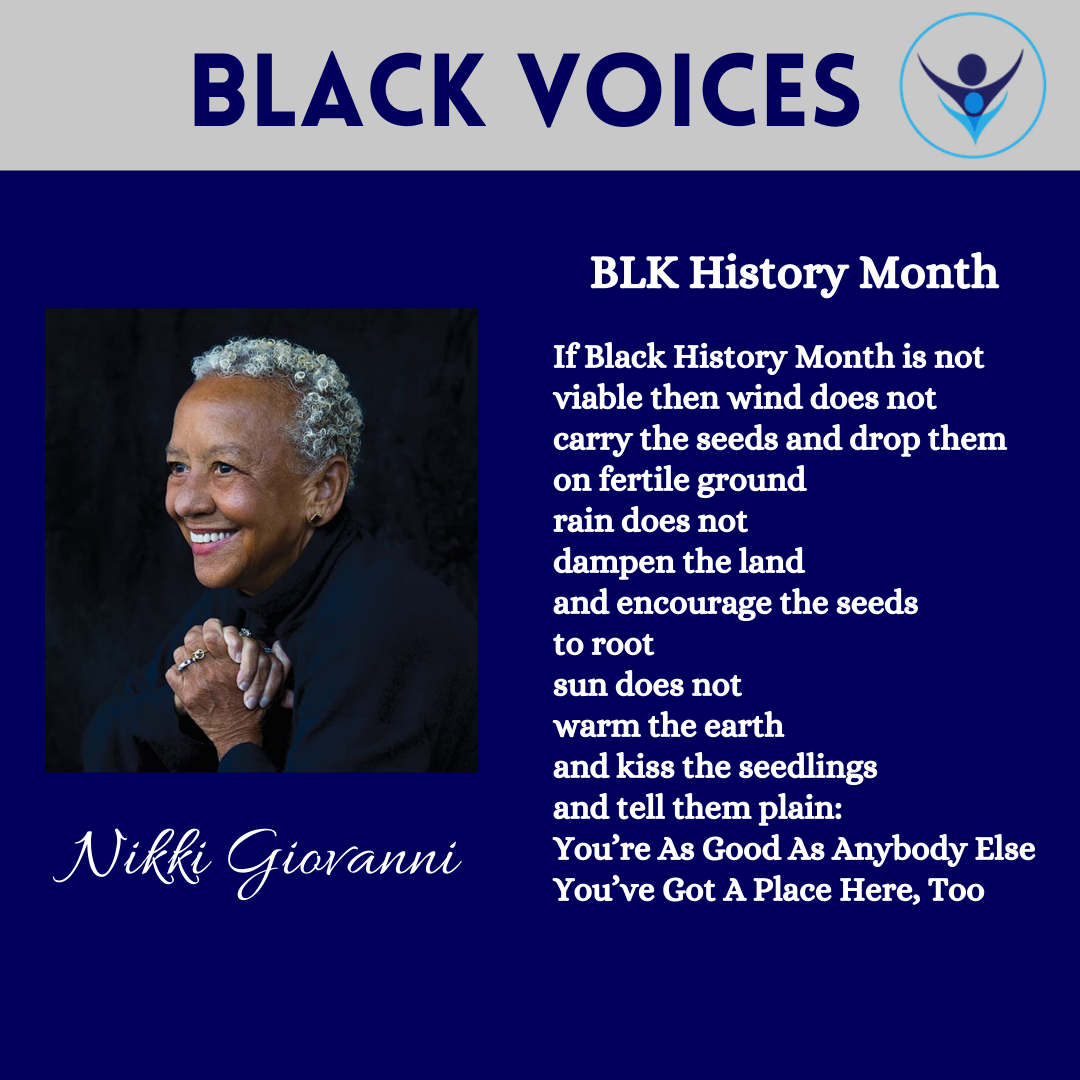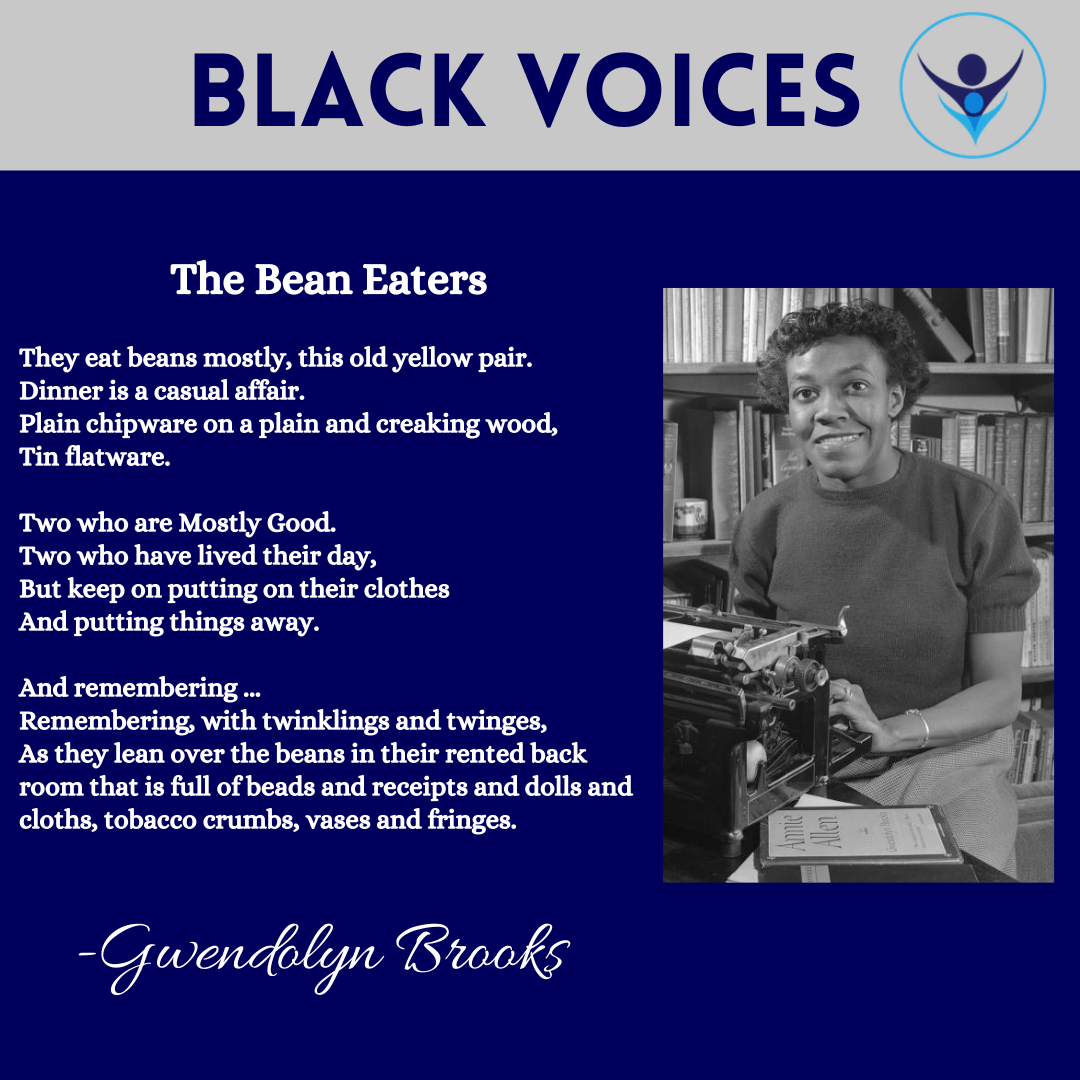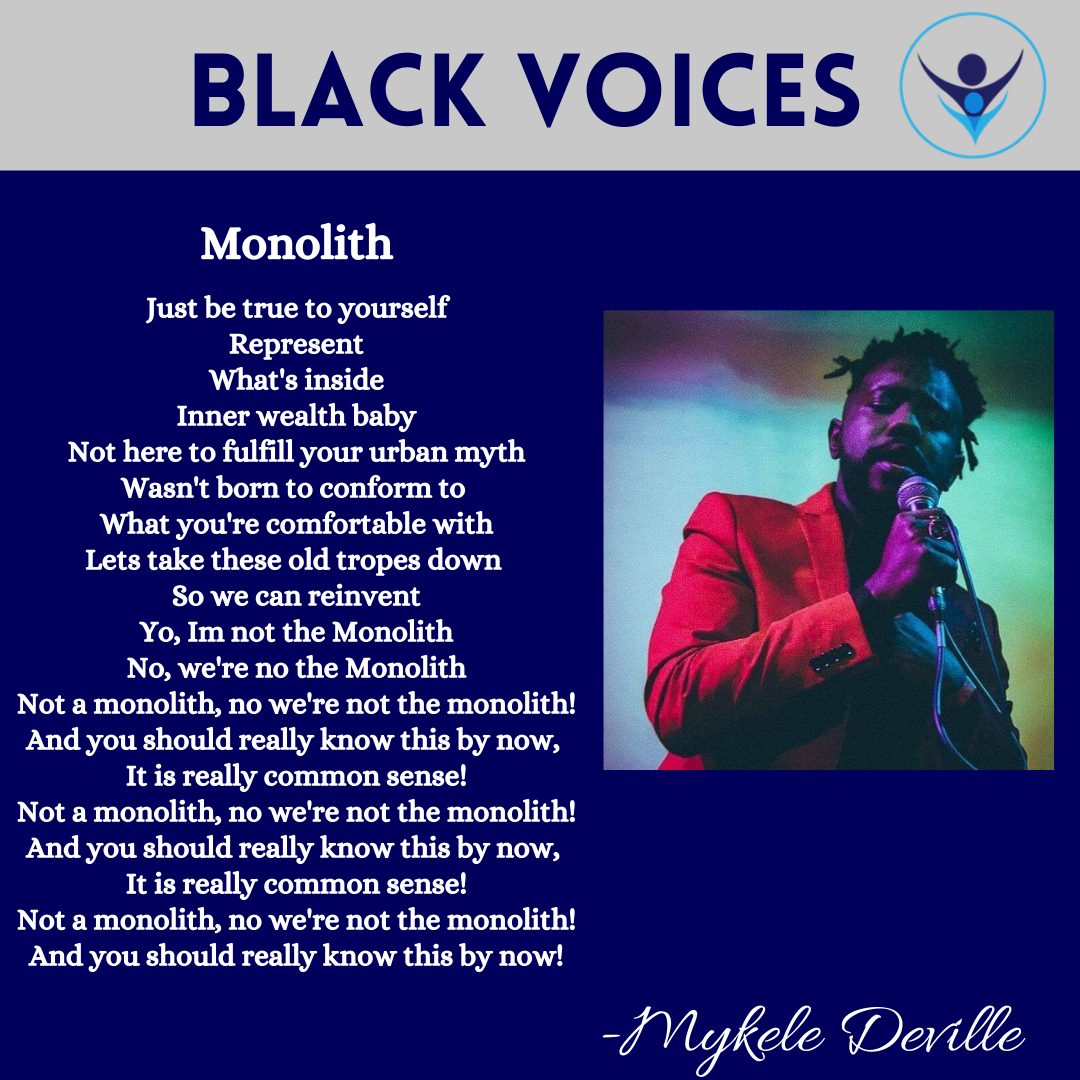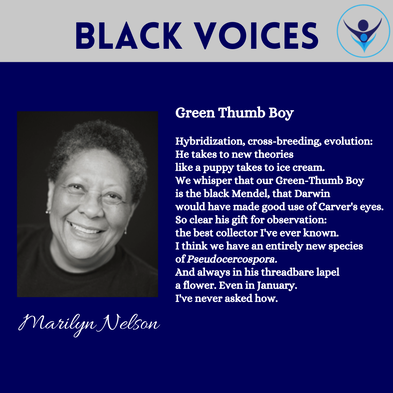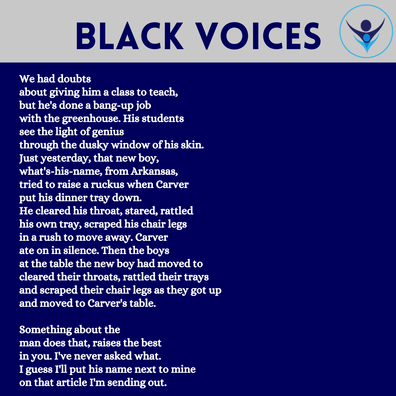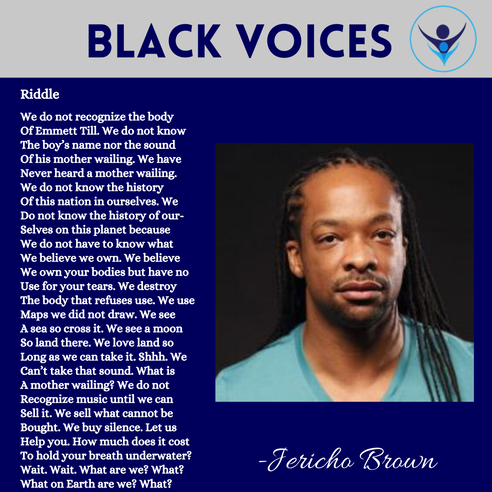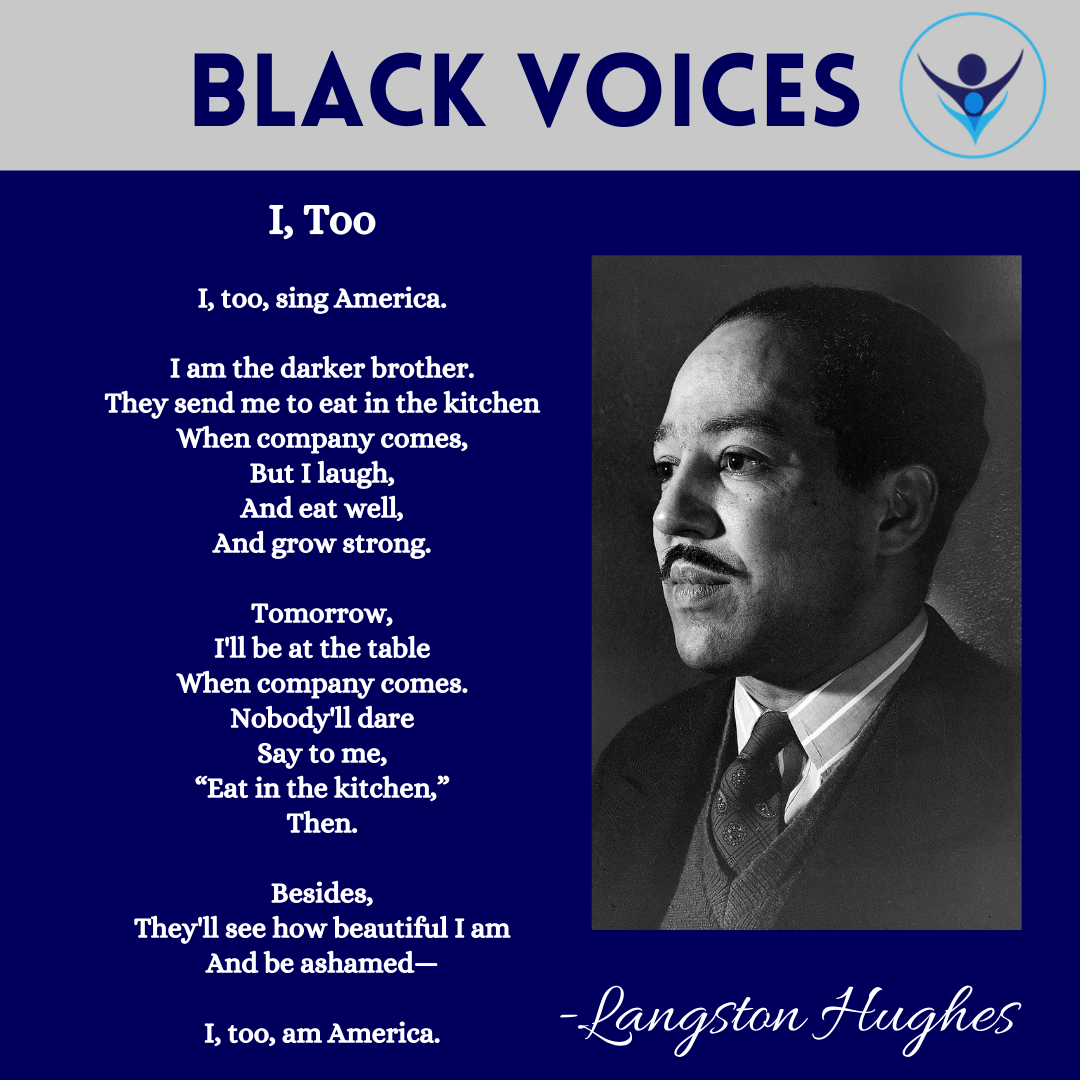Black History Month - Black Voices
Beginning with #BlackHistoryMonth in 2021, we have been highlighting the work of Black voices in poetry. This is a compilation of all the poetry we have shared.
|
Wanda Coleman was a lifelong Angeleno, often called the “unofficial poet laureate of Los Angeles”. Before becoming a poet, she worked as a medical secretary, a screenwriter, magazine editor, and journalist. She published over a dozen poetry collections in her lifetime, as well as three books.
Coleman wrote and published one hundred “American Sonnets," all of which conveyed sharp wit and piercing insights in just a handful of lines. In her poetry, she often built upon the works of her poetic predecessors, homages that engaged with and stood up to the poetry of other writers. Thought to be one of the greatest poets to come out of Los Angeles, she articulated the hardships, both social and economic, of life in L.A. She instilled in her poetry a biting humor, and her observations on race and gender remain just as impactful today as they were when she wrote them. |
Effie Lee Newsome was a poet of the Harlem Renaissance, specializing in poetry for both adults and children.
In 1925, she began writing for the NAACP’s magazine The Crisis, contributing a section called The Little Page that was geared towards America’s youth, instilling in them that to be colored is to be beautiful. This idea is ever-present in Newsome’s poetry, which also taught black history. Newsome campaigned for black representation in children’s literature, seeking to emphasize the inherent value of black lives in her work. Throughout her life, Newsome lived in Pennsylvania, Texas, Alabama, and Ohio. She maintained her career as a poet while working jobs as a librarian. She passed away in 1978 in Wilberforce, Ohio. |
|
We honor the life and work of Langston Hughes, a pioneer of the Harlem Renaissance and literary innovator.
Hughes was born in Missouri in 1901. He moved to New York as a young adult and published his first book of poetry in 1924. He is known for vividly depicting black life in America throughout his prolific writing career, writing novels, short stories, plays, and poetry. In a time when many poets of the day were turning to esoteric language in their work, Hughes became known for using accessible, down-to-earth language and relatable themes. His poetry is geared towards the common man – as Langston described, the “workers, roustabouts, and singers, and job hunters on Lenox Avenue in New York, or Seventh Street in Washington or South State in Chicago—people up today and down tomorrow, working this week and fired the next, beaten and baffled, but determined not to be wholly beaten.” Hughes passed away in 1967 from prostate cancer. He remains known today as a true poet of the people. |
Georgia Douglas Johnson was a Black poet and critical figure of the Harlem Renaissance in Washington, D.C. She was born in Atlanta, Georgia, and moved to Washington, D.C. in 1910. Johnson released numerous poetry collections and traveled extensively to give poetry readings. After her husband’s death in 1925, her house in D.C. became known as the “S Street Salon” as she hosted weekly meetups there for friends and artists. The S Street Salon became the center of the Harlem Renaissance in D.C. and was frequented by the likes of Langston Hughes, Anne Spencer, and Zora Neale Hurston.
Johnson achieved great success during her lifetime. She died of a stroke in 1966, just one year after receiving an honorary doctorate in literature from Atlanta University. |
|
Today we’re closing out our Black Voices series for #BlackHistoryMonth with a poem by the acclaimed poet and activist Maya Angelou.
As a civil rights activist, Angelou worked for Martin Luther King Jr. and Malcolm X. According to the Poetry Foundation, her writing is known for its “depictions of Black beauty, the strength of women, and the human spirit.” Through her poetry and several autobiographies, she also explores the theme of individuals overcoming hardships and calls for social justice for all people. Her voice and many artistic contributions have made an enduring impact on American life. Learn more at: https://www.poetryfoundation.org/poets/maya-angelou |
Sonia Sanchez is a widely recognized poet, playwright, children's book author, and professor. She has written more than a dozen books of poetry and received numerous awards, such as the Robert Creeley Award, the Frost Medal, the Community Service Award from the National Black Caucus of State Legislators, the Lucretia Mott Award, the Peace and Freedom Award from Women International League for Peace and Freedom, the Pennsylvania Governor's Award for Excellence in the Humanities, a National Endowment for the Arts Award, and the the Wallace Stevens Award.
|
|
For today’s Black Voices series, we’re listening to “The Bigger Picture” by rapper Lil Baby. He released the powerful song in response to the killing of George Floyd, and it quickly gained popularity as people across the country called for change. In the song, which has been called a Black Lives Matter anthem, Lil Baby draws on his own experiences with police brutality and expresses the deep suffering caused by systemic racism. He calls on all of us to fight for change.
Listen here: https://bit.ly/37S3xu3 |
Georgia Douglas Johnson was a poet, playwright, and columnist who was active in the Harlem Renaissance. Her home in Washington D.C. was an important meeting place for writers affiliated with the movement. After being widowed, Johnson supported herself and her two sons by working for the Department of Labor while still pursuing her writing. She wrote four collections of poetry, a weekly newspaper column, and several plays.
Today, we draw inspiration from her life and her uplifting poem “When I Rise Up”. |
|
James Emanuel was a groundbreaking poet and scholar who played a major role in including African American literature studies in English college curricula. He also developed a new genre of poetry known as the “jazz haiku.” He performed these poems with live jazz accompaniment. His awards include the Sidney Bechet Award, John Hay Whitney Award, a Saxton Memorial Fellowship, a Special Distinction Award from the Black American Literature Forum, and the Dean’s Award for Distinguished Achievement from Columbia University.
|
Today for #BlackHistoryMonth, we return to the work of acclaimed poet Rita Dove. In her poem “The First Book,” she explores the limitless possibilities that open up through reading.
|
|
Today for #BlackHistoryMonth, we’re celebrating the internationally acclaimed poet Lenard D. Moore.
Moore was the first African American to be elected president of the Haiku Society of America. He also founded the Carolina African American Writers’ collective and has won numerous awards, including the Haiku Museum of Tokyo Award, the Indies Arts Award, the Margaret Walker Creative Writing Award, and the Tar Heel of the Week Award, and several others. |
Acclaimed writer Richard Wright was best known for his novels and short stories. But towards the end of his life, he was also a prolific poet, writing an estimated 4,000 haikus. Through his numerous works, Wright depicted the injustices and harsh realities faced by African Americans. Today, he is regarded as one of the most important novelists and essayists of the 20th century.
|
|
Today we’re reading “Sonnet” by James Weldon Johnson.
Johnson was a highly respected poet, novelist, and civil rights leader. Throughout his life, he led the National Association for the Advancement of Colored People (NAACP), wrote numerous poetry collections, served as a teacher and principal, founded a newspaper that became a voice against racial injustice, was the first Black lawyer admitted to the Florida Bar since Reconstruction, and was an active political voice for civil rights. Today we appreciate his works and draw inspiration from his life. Learn more at: https://www.poetryfoundation.org/poets/james-weldon-johnson |
KRS-One has been called one of the most socially conscious rappers of our time. In his song “You Must Learn,” he lifts up the rich contributions of African Americans and calls for an improved education system that recognizes these achievements and empowers children. Give it a listen at: http://bit.ly/BHM-KRS
Throughout his career, KRS-One has used his talents to speak out about police brutality, racism, poverty, and lack of education. His passion for social justice has flourished not only through his music, but through multiple projects to enact change. KRS-One formed the “Stop the Violence Movement” to address violence in the Hip Hop community after his friend and musical collaborator Scott La Rock was killed. He also founded the “Temple of Hip Hop,” an international hip hop cultural preservation ministry, and is a vegan activist. |
|
"We Real Cool" by Gwendolyn Brooks is our #BlackHistoryMonth poem of the day.
Read more of her work at: https://poets.org/poem/we-real-cool |
For today's #BlackHistoryMonth Black Voices series, we return to the work of Langston Hughes.
Check out his short but impactful poem, "My People". |
|
Today’s #BlackHistoryMonth poem is “And What Shall You Say?” by Joseph S. Cotter, Jr.
Cotter was an author and poet from Louisville, KY who wrote numerous volumes of poetry. Having been raised by a father who was a respected poet, Cotter was determined to forge his own style. He experimented with several forms of poetry and explored various themes, such as prejudice and the devastating effect of World War I. Though he died of tuberculosis when he was only 23, Cotter is still remembered today as a great poetic innovator. |
Today for #BlackHistoryMonth, we’re lifting up the powerful work of American poet Lucille Clifton.
According to the Poetry Foundation, Clifton spoke in interviews about the hope and sense of connectedness she found through writing: “Writing is way of continuing to hope ... perhaps for me it is a way of remembering I am not alone...I would like to be seen as a woman whose roots go back to Africa, who tried to honor being human. My inclination is to try to help.” As a writer, Clifton used her creativity and mastery of language to craft stories that resonated deeply with people. The subjects of her work varied, but many highlighted the African American experience and conveyed endurance through adversity. Throughout her career, Clifton was named as Poet Laureate for the State of Maryland and was the recipient of the Ruth Lilly Prize, the Lannan Literary Award, the Shelley Memorial Award, the YM-YWHA Poetry Center Discovery Award, an Emmy Award from the American Academy of Television Arts and Sciences, and two fellowships from the National Endowment for the Arts. Learn more about her life and works. |
|
Happy Valentine's Day! Enjoy this sweet poem, "Happenstance" by Rita Dove.
During her prolific writing career, Dove served as the US Poet Laureate from 1993 to 1995. She also served as the Chancellor of the Academy of American Poets from 2005 to 2011. |
Today’s #BlackHistoryMonth Black Voices poem is “Nocturne Varial” by Lewis Alexander.
Alexander was a poet, actor, playwright, and costume designer who lived in Washington D.C. Throughout his career, his work was widely published in popular journals and magazines. He was especially interested in Japanese forms of poetry, such as the Haiku, and often incorporated natural imagery into his work to convey deep emotion. Photo: Published on Allpoetry.com |
|
Today for #BlackHistoryMonth, we’re celebrating Jessie Redmon Fauset.
Fauset was an African American poet, essayist, editor, novelist and educator whose artistic contributions were vital to the Harlem Renaissance. Learn more at: https://poets.org/poet/jessie-redmon-fauset |
“A Black Man Talks of Reaping” by Arna Bontemps.
Bontemps was an American poet, novelist, historian, anthropologist, and archivist. Through his work, Bontemps explored the African American experience. According to the Poetry Foundation, “Bontemps' poems are marked by a concern for the values of endurance and dignity— themes he treats in conservative forms even as he expresses his rage at injustice.” Learn more. |
|
Our #BlackHistoryMonth poem of the day is “Dark Symphony” by Melvin B. Tolson. (excerpt shown above)
One of America’s leading poets and educators, Tolson was known for his “complex, visionary poetry.” Appointed as poet laureate of Liberia, much of his work incorporates social commentary, historical themes, and a celebration of the spirit and strength of Black Americans. “Dark Symphony” uplifts the struggles, resilience, and accomplishments of Black Americans. Read the full poem at: https://www.flashpointmag.com/mbtsymphonywmv.htm Read more about Tolson’s life and works. |
Today we’re celebrating Margaret Walker, a poet and novelist who was an important figure in the Chicago Black Renaissance.
Walker’s brilliant work has been recognized through numerous awards, including the Living Legacy Award, the Lifetime Achievement Award of the College Language Association, and the Lifetime Achievement Award for Excellence in the Arts. She was also inducted into the African American Literary Hall of Fame and has received six honorary degrees. Read more of her work. |
|
Have you read “BLK History Month” by Nikki Giovanni?
One of America’s foremost poets, Giovanni began writing as a response to “the pressing need she saw to raise the awareness of the plight and the rights of Black people.” She has won seven NAACP Image Awards, the Langston Hughes Award for Distinguished Contributions to Arts and Letters, the Rosa Parks Women of Courage Award and numerous honorary degrees from colleges and universities around the country. Read more of her work. Photo: American Libraries Magazine |
This Saturday, we’re celebrating Gwendolyn Brooks, one of the most highly regarded and influential poets of the 20th century.
Brooks was the first Black author to win the Pulitzer Prize, a poet Laureate of the State of Illinois, and the first Black woman to hold the position of poetry consultant to the Library of Congress. Read more about her life and works at: https://www.poetryfoundation.org/poets/gwendolyn-brooks |
|
Rap is poetry. Today for #BlackHistoryMonth, we’re listening to “Monolith” by Mykele Deville. Listen here!
Delville is a Chicago-based poet, rapper, actor, and curator who is a member of the Growing Concerns Poetry Collective. The Collective fuses poetry and hip hop and uses their unique voice to unite people against white supremacy. Check out Deville’s Youtube channel & Spotify for more songs! “Monolith” also features Jovan & Trig, and is produced by Ben Moroney. Photo: Published in the Chicago Reader, courtesy of the artist |
Today we’re reading “Green Thumb Boy” by Marilyn Nelson, an accomplished poet, writer, and translator.
She is the winner of the Robert Frost medal, the NCTE Award for Excellence in Poetry for Children, the NSK Neustadt Prize for Children’s Literature, and the Ruth Lilly Poetry Prize. According to the Poetry Foundation, “Nelson’s work for both children and adults deftly manages lyric tradition and historical truths, examining complex issues around race, feminism, and the ongoing trauma of slavery in American life in narratives poised between song and speech.” Explore more of Nelson’s works here: Marilyn Nelson – Educator | Poet | Author (marilynnelson-poetry.com) |
|
Today, we’re highlighting the work of the critically acclaimed writer and poet Jericho Brown.
Brown is the director of the Creative Writing Program at Emory University and a recipient of the Pulitzer Prize, Whiting Award, and fellowships from the Guggenheim Foundation & Radcliffe Institute for Advanced Study at Harvard. Read his striking poem, “Riddle”, and explore his other works at https://www.jerichobrown.com/. |
Today we celebrate Langston Hughes, an accomplished poet, activist, playwright, columnist, and novelist who is known as a leader in the Harlem Renaissance.
Through his writings, Hughes illuminated the experience of Black Americans, confronted racial stereotypes, and protested social injustice. His life and creative genius remain influential in American literature today. |
|
In her poem, "Earthrise", Youth Poet Laureate Amanda Gorman uses her incredible artistic gifts to urge us to take action to address climate change:
"It is a hope that implores us at an uncompromising core to keep rising up for an Earth more than worth fighting for." |
|

